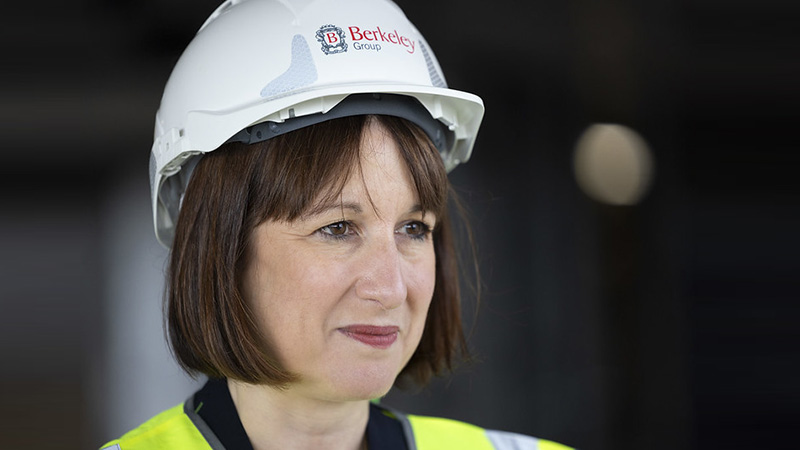Fund groups expect the new Labour government’s policies to enhance economic growth, according to a global fund manager survey conducted by Quilter Investors.
Some 69% of respondents expect Labour to aid economic growth, while 31% believed there would be little impact. None, however, believed the new government would reduce economic growth.
They said political stability and the UK market’s newfound attractiveness to overseas investors was likely to be a main driver for this expected growth, with fund groups upping their forecasts for UK growth to a weighted average predicted growth rate in 2025 of 1.22%, up from 0.98% last quarter.
The survey is carried out on a quarterly basis, with leading fund managers covering forecasts for macroeconomic data and timely indicators.
“The Labour Party and the City have not always been natural partners, but given the economic inheritance received following the general election win, Chancellor Rachel Reeves has done a lot to instil a level of confidence in the new government,” Lindsay James, investment strategist at Quilter Investors, said.
“While things are supposedly worse than expected, fund groups clearly think Labour will help stimulate economic growth, at a time when the UK’s fortunes appear healthier than they have been. Labour was coy with what it had planned, but markets crave stability.
“With such a large majority, investors clearly believe Labour does now offer that assuredness, despite the numerous tax rumours, and can bring back overseas investment.”
See also: Morningstar: Fixed income funds see highest net flows in five years
Interest rate expectations
While there was a consensus that UK interest rates will fall further following on from the Bank of England’s first cut earlier this month, views among fund groups diverged on how much they will fall by the end of next year with predictions ranging from 2.5% to 4.5%.
Meanwhile, 47% expect UK CPI to end the year between 2.51-2.85%, with two thirds expecting inflation to remain well above the 2% target level by the end of 2025.
In the US, almost half of respondents expect interest rates to sit between 3.76% and 4.25% at the end of next year, with a September rate cute the most likely scenario. 80% expect inflation to be more than 2.21% next year, up from 69% at the last survey.
In light of the US election in November, respondents were also asked about the potential impact of increased trade tensions between the US and China.
With potential tariff increases a key talking point in the electoral race, half of the groups surveyed saw increased tariffs as a positive for emerging markets outside of China, with only one in seven (14%) believing them to be negative.
In particular, Mexico was seen as one of the biggest beneficiaries as it would look to bring as much of the supply chain to the US border as possible.
See also: Is it finally time for UK commercial property to shine?
“Despite the Bank of England cutting recently, interest rates remain increasingly difficult to predict, with many investors now pinning hopes on September for the Federal Reserve’s first rate cut in the US,” Quilter’s James added. “With market volatility now hitting and fears of a slowing economy, this appears to be a realistic possibility.
“But what happens afterwards is a source of contention. In the UK, we have a wide range of forecasts, mirrored in the eurozone. In the US, however, it is expected that slowing but still good economic growth will keep a lid on the rate cuts, with inflation likely to remain persistently above the 2% target at the end of next year.
“Finally, the upcoming US election has many fascinating outcomes that investors will be watching closely. Clearly, a Donald Trump presidency, emboldened with J.D. Vance as his deputy, will result in further tariffs on Chinese products, as he seeks to protect American industries. However, this may provide a boost to other emerging markets, suggesting China’s recovery is not quite ready to be played out.”










